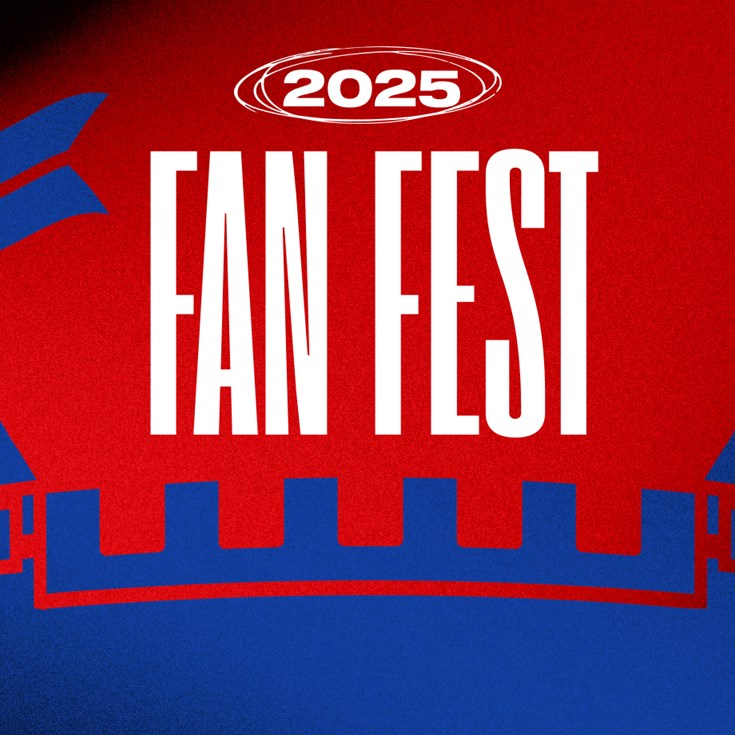

It was the height of the Knights golden era.
In the backline, there was Robbie O’Davis, Timana Tahu, Mark Hughes, Matt Gidley, Adam MacDougall and the Johns brothers, all at the peak of their powers.
Up front, names like Parsons, Buderus, Kennedy, Butterfield, Simpson and Peden laid the platform.
With Warren Ryan at the helm, a strong case could be made that this was the greatest Newcastle side ever assembled.

“To my way of thinking, it was one of, if not the best Knights team I ever played in,” Bill Peden told Untold Stories.
“We genuinely thought we were going to another Grand Final.”
So, what went wrong?
The Knights recovered from an inconsistent start to the season, finishing third, just one point behind the Sydney Roosters and seven behind runaway minor premiers Brisbane.
At full strength, the team was firing on all cylinders, beating both the Roosters and Broncos in a stunning run home.
They stormed into the preliminary final with a convincing 30-16 win over defending premiers Melbourne in the first week of the finals, where they would go in as heavy favourites against a Roosters side which had to do it the hard way after losing in week one.
“It was a big occasion for us, it’d been a few years since the ’97 game and we were very confident,” Peden said.
Newcastle had every reason to go in favourites. They had seven players with experience from ’97 and had smashed the Roosters 46-12 just a few weeks earlier.

The Knights raced to a 16-2 half time lead, with tries to Mark Hughes, Andrew Johns and Darren Albert. The Knights were so dominant the second half seemed to be little more than a formality on their way to a second appearance at the Big Dance.
As the two teams entered the tunnel at half time, Johns even wished Roosters lock Luke Ricketson all the best for Mad Monday.
“We honestly thought we were going to a Grand Final,” Peden said.
“We were supremely confident, but from there the wheels fell off.”

According to Robert Dillon's book Hard Yards, Warren Ryan shocked his team at the break by insisting on switching to up-and-in defence, as opposed to the sliding style which had been working so well in the opening 40 minutes.
Captain Tony Butterfield recalled as much, reflecting the confusion of senior players to his decision.
“It made no sense,” Butterfield said.
“But it wasn’t the time or place for an argument.”
After the break, the game changed dramatically.
The Roosters, led by Brad Fittler, were alerted to the Knights change of defensive strategy, exposing it to storm to a 20-16 lead.
The shell-shocked Knights had little answer, with Andrew Johns even throwing a rare intercept pass to a flying Fittler for the Chooks’ second try.
By full-time, the Knights had crashed out of the competition, with the final score reading 26-20.

The image of Johns slamming his mouthguard on the ground, before sitting dejected in the in-goal area for several minutes was a tough one for all Knights fans to take.
“I still don’t know why we got beat or how we got beat,” he said post-match.
“At 16-2, that should’ve been enough.”

Second-rower Steve Simpson agreed, citing 2000 as the year that burns him the most.
"Everyone in that squad thinks something got away in that Roosters game," Simpson told the Our Town Our Team podcast.
"We had a great side on paper, and it left a really dirty taste in our mouths getting beat in that game, and it probably set us up for the following year to be honest."

The soul-destroying nature of the loss seemed to just be the beginning. The Knights were losing Club legends Matthew Johns and Tony Butterfield the following season, as well as their Coach, with rookie Michael Hagan taking the reins.
2001, it seemed, would be a year to rebuild. However, according to Peden, the pain of the loss in 2000 is what provided motivation for the Knights to go one better in ’01.
“The 2001 experience may not have happened if we didn’t have that gut-wrenching experience in 2000,” he said.

“Without that hurt, maybe the hunger wouldn’t have been there for the 2001 premiership.
“It maybe doesn’t happen without the pain of that game.”





